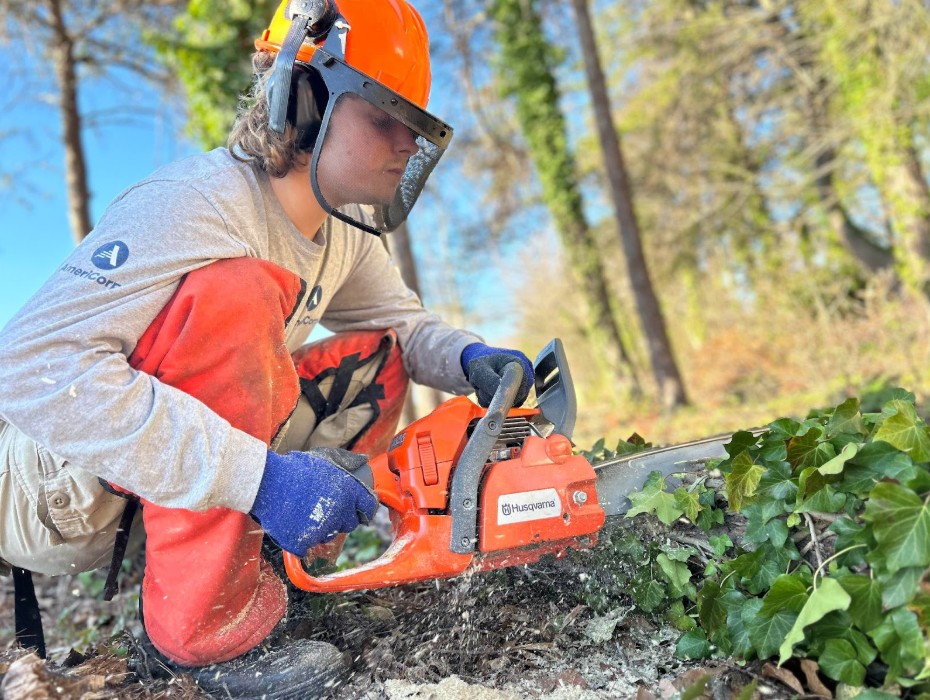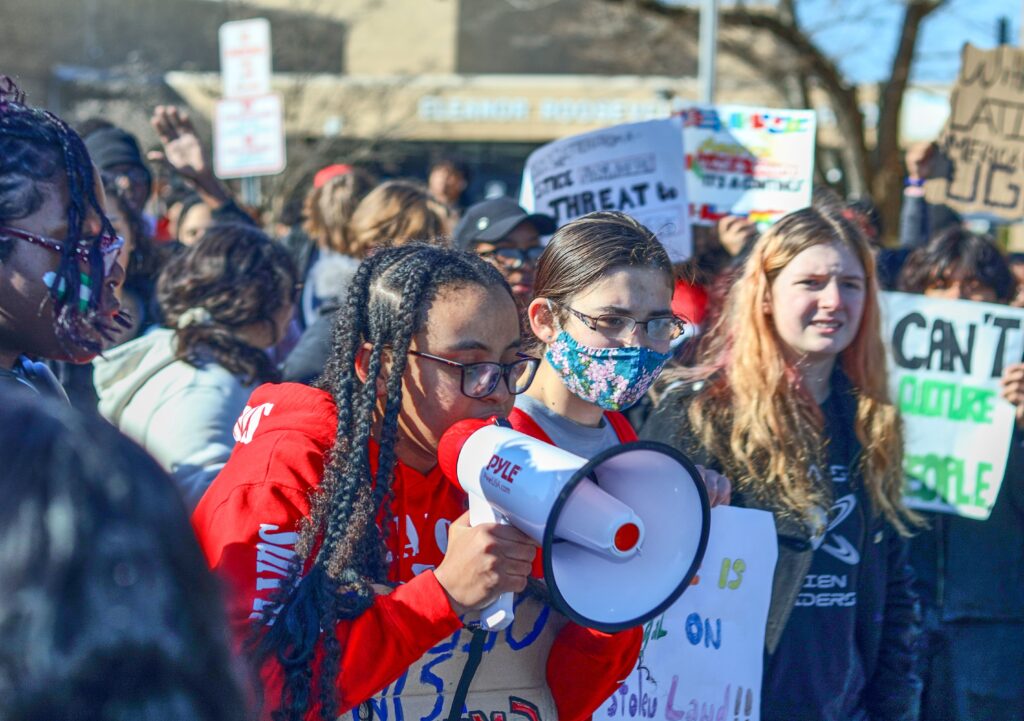For nine months, Greenbelter Jackson Tuthill, 20, was an AmeriCorps National Civilian Community Corps (NCCC) member. He and a team of six others built homes in North Carolina, assisted with hurricane disaster recovery in Florida and repaired hiking trails in the Great Smoky Mountains. They were building a retaining wall on the Ohio River in West Virginia when their team leader got a call with shocking news.
“We got the call and by that night, we had packed our bags and were already heading home,” Tuthill said.
The Trump administration announced plans to eliminate nearly $400 million in federal AmeriCorps grants. A notice on April 25 said the grants no longer fit AmeriCorps’ priorities, offering no further details. The administration also fired around 85 percent of AmeriCorps staff, dealing a detrimental blow to the organization.
AmeriCorps was founded in 1993, providing opportunities for Americans to serve their communities through education, disaster relief, environmental work and public health initiatives. The sudden halt to these programs left many of the communities they served without consistent, reliable support.
“We are concerned about what this means for the programming the terminated members will leave behind, with many serving in public and charter schools as tutors, providing a safe environment and quality activities in afterschool programs, coordinating food distribution at pantries and responding to recent storms and other disasters,” said a statement from America’s Service Commissions, a nonprofit that manages AmeriCorps funding.
This decision has caused damage to more than 1,000 AmeriCorps programs across the country and has prematurely terminated the service of some 32,000 members, leaving them without a living stipend and forcing them to rapidly rethink their plans for the future.
Following his NCCC service, Tuthill had been accepted to work with an after-school program in Alaska as a part of the AmeriCorps State and National program.
“About, maybe one or two weeks after I’d gotten sent home from NCCC, I got the call from the State and National program saying, hey, we got DOGEd too. Sorry, there’s no job anymore,” Tuthill explained.
Tuthill is now home in Greenbelt, deciding between going back to college in the United States or studying abroad. He is still heavily considering working with AmeriCorps or a similar program in the future, but wants to feel secure in its stability.
“I would be hesitant to work with AmeriCorps in the future because I feel as if I have no way of knowing that they wouldn’t simply be shut down midway through again,” Tuthill said. “And it’s a crying shame it’s no longer an option anymore because I believe it was one of, if not the best, alternative path to traditional higher education.”
On April 29, Maryland, along with 24 other states and the District of Columbia, sued the Trump administration in an effort to stop the dismantling of AmeriCorps. The suit claimed that the sudden budget cuts failed to provide sufficient public notice and exceeded presidential powers.
These claims were echoed in an April 23 letter to President Donald Trump, led by U.S. Senator Chris Koons (D-Del.) and signed by 147 Congress members.
“We are deeply concerned that this is the goal: to eliminate AmeriCorps, in direct conflict with recently enacted appropriations,” the letter said. “We urge you to reverse these actions and instead work with Congress on bipartisan improvements to
AmeriCorps so that more Americans have the opportunity to serve their communities.”
U.S. District Judge Deborah L. Boardman on Thursday ordered the Trump administration to restore AmeriCorps programs and workers in the states that participated in the lawsuit. She issued a temporary order blocking the cuts made by the administration. This order does not affect the programs in states that were not part of the suit or cuts aimed at the agency’s headquarters.
There have also been significant efforts made by AmeriCorps members to keep the spirit and mission of the organization running despite the sudden changes.
“There is a lot of fight for AmeriCorps to come back. There are some teams in the Pacific region that have decided to self fund, essentially just continuing to independently work on the projects they were doing for another year. Just kind of going rogue as an independent team,” said Tuthill.



